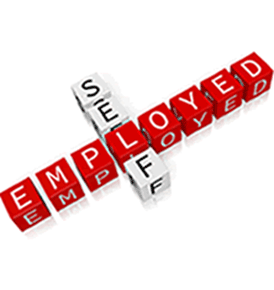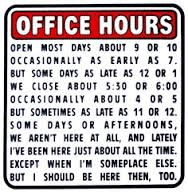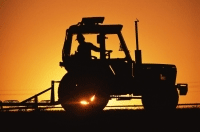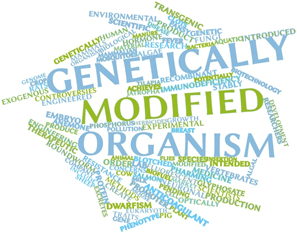Self-employed – do you still have duties?
 In 2011, the Löfstedt Review recommended that those self-employed, whose work activities pose no potential risk of harm to others, should be exempt from health and safety law. This recommendation was accepted by Government.
In 2011, the Löfstedt Review recommended that those self-employed, whose work activities pose no potential risk of harm to others, should be exempt from health and safety law. This recommendation was accepted by Government.
So, from 1 October 2015, if you are self-employed and your work activity poses no potential risk to the health and safety of other workers, or members of the public, then health and safety law will not apply to you.
So this week I thought I’d look at this new legislation and see if it applies to you or not.
The two HSE cases this week both look at tragic accidents that shouldn’t have happened
- A two year old child gained access to a site and was riding his bike when he fell into a drain, the cover of which had been removed.
- A Gloucester firm has been sentenced for safety failings, after refurbishment work on her home left an elderly tenant at risk from a dangerous gas heater.
As ever, if you have a subject that you would like us to cover one week, please contact us by phone 01458 253682, email or via our Facebook page or by Twitter
Self-employed – do you still have duties?
So, from 1 October 2015, if you are self-employed and your work activity poses no potential risk to the health and safety of other workers, or members of the public, then health and safety law will not apply to you.
The HSE estimate that health and safety law will no longer apply to 1.7 million self-employed people like novelists, journalists, graphic designers, accountants, confectioners, financial advisors and online traders.
So let’s look at this ruling a little closer;
What the law says
- if your work activity is specifically mentioned in the regulations above
or
- if your work activity poses a risk to the health and safety of others, then the usual Health & Safety law applies to you,
So what is meant by the term ‘self-employed’?
For health and safety law purposes, ‘self-employed’ means that you do not work under a Contract of employment or Contract of service and work only for yourself.
- The term “contract of employment” has not been comprehensively defined either in legislation or case law. Over the years, the courts have adopted various tests in order to determine whether or not a certain relationship amounts to a relationship of employment. The modern approach adopted by the courts is to consider all the factors relevant to the issue of employment and to weigh up those factors that point towards the existence of a contract of employment and those that point away from such a contract.
- However, a “contract for services” is a contract whereby a person is merely under an obligation to perform some work or service for another person, without an employment relationship being created between the two. People working under a “contract for services” are usually contractors or self-employed.
- If you’re self-employed and employ others, the law that has applied to you for many years, will apply to you. You may be self-employed for tax purposes, but this may not be so for health and safety.
What is a ‘risk to the health and safety of others’?
This is the likelihood of someone else being harmed or injured (e.g. members of the public, clients, contractors etc) as a consequence of your work activity.
Most self-employed people will know if their work poses a risk to the health and safety of others. You must consider the work you are doing and judge for yourself if it creates a risk or not.
For example if you operate a fairground ride for the public to use then your work could affect the health and safety of other people and you must take appropriate steps to protect them as the law will apply to you.
How do I know if I create a risk to others?
Think about the types of activities you undertake as part of your work and ask yourself if they pose a risk to the health or safety of others.
You have a duty to protect yourself and others from the risks your work creates, even if this is only for a small part of your overall work activity. However, in practical terms, if you are self-employed you will not have to do anything where there is no risk to others.
Can other people be affected by your work activities? If so, think about the services that you provide to them, in particular.
- Your working environment? Do you work in a garage, workshop or workplace where other people have access? Could you harm their health or safety?
- The equipment, materials or substances that you use? Could someone be burnt, scalded, crushed, trip over or fall? Does your work activity create noise, dust, fumes? Do you use any materials or substances that could injure someone if they came into contact with them?
If the answer is yes to any of above, then it is likely that your work activities may pose a risk to the health and safety of another person and the health and safety legislation will apply to you.
Examples – does the law apply to me?
It is impossible to list all work activities undertaken by the self-employed, the examples below of a range of self-employed jobs are illustrative and will help you determine the types of jobs that do or don’t create risks and whether or not they are likely to be exempt from health and safety.
- Hairdresser – I’m a self-employed hairdresser, does the law apply to me?
If you use bleaching agents or similar chemicals then yes, the law will apply to you. If you are simply washing and cutting hair, then health and safety law will no longer apply.
- Dressmaker – I work at home altering garments and making soft furnishings, does the law apply to me?
No, health and safety law will not apply to you.
- Photographer – I take photographs of weddings and special occasions for clients which means that sometimes they visit my studio to discuss arrangements; does the law apply to me?
No, health and safety law will not apply to you.
- Artist – I produce cards, gifts and pictures for sale at markets and fairs, does the law apply to me?
No, health and safety law will not apply to you.
- Baker – I run a cake business from home, does the law apply to me?
No, health and safety law will not apply to you although you do have duties under the food safety regulations.
- Office work – I work in an office at home, does the law apply to me?
It doesn’t depend on whether you’re at home; it is the work activity that matters. So, if you’re working on a client’s accounts, even if clients visit you in your place of work, the law will no longer apply. If you’re writing a manual, which someone will use to operate machinery, then the law will still apply.
- Architect/Engineer work – I work in an office at home, does the law apply to me?
As with the answer above, it doesn’t depend on whether you’re at home; it is the work activity that matters. So, if you’re working on a design for a building or part of a building, which someone will follow to build that building and they could be at risk whilst doing this, then the law will still apply.
- Advice – I am a health and safety consultant and visit clients to give advice, does the law apply to me?
Yes, your clients will act on your advice and this affects how other people do their job.
- Landlords – I let rooms and properties to tenants; does the law apply to me?
Yes, you have specific responsibilities under the Gas Safety (Installation and Use) Regulations.
High Risk activities
The law says that there are certain work activities where the law applies because they are high risk. If your work involves any of these activities, then the law will apply to you.
Agriculture (including forestry)
Agriculture (including forestry) means any work activity mentioned in regulation 2(1) of the Health and Safety (Enforcing Authority) Regulations 1998:
Agricultural activities means all types of farming including arable and dairy, the keeping of livestock, grazing land, market gardening and forestry.
Asbestos
Any work with asbestos which:
- involves a sampling activity; but
- is not work with asbestos.
Any activity carried out by a dutyholder under regulation 4 of the Control of Asbestos Regulations 2012 (the “2012 Regulations”) (duty to manage asbestos in non-domestic premises).
In this paragraph—
- “asbestos” has the meaning given in regulation 2 of the 2012 Regulations;
- “dutyholder” has the meaning given in regulation 4(1) of the 2012 Regulations;
- “sampling activity” means—
- air monitoring;
- the collection of air samples; or
- the analysis of air samples,
to ascertain whether asbestos fibres are present in the air, or to measure the concentration of such fibres; and
- “work with asbestos” is to be read in accordance with regulation 2(2) of the 2012 Regulations.
Construction
Any work which is carried out on a construction site.
And any work in relation to a project carried out by a designer, a client, a contractor, a principal contractor or a principal designer which gives rise to a duty under the Construction (Design and Management) Regulations 2015 (“the 2015 Regulations”).
In this paragraph—
(a)“client”, “contractor”, “designer”, “principal contractor”, “principal designer” and “project” have the meanings given in regulation 2(1) of the 2015 Regulations; and
(b)“construction site” is to be read in accordance with that regulation.
Gas
Working with gas includes the installing, servicing, maintaining or repairing of any gas appliances or gas fittings both in domestic and commercial premises.
Landlords have specific responsibilities to their tenants as regards gas safety.
Railways
This means any work activity mentioned in regulation 2 of the Health and Safety (Enforcing Authority for Railways and Other Guided Transport Systems) Regulations 2006
Working on a railway or tramway includes driving, loading and unloading the vehicles and any maintenance or repairs to vehicles or infrastructure. It also includes signalling operations and training
Genetically Modified Organisms
If your work activity involves GMOs within a research laboratory or a biotechnology production facility and not released into the environment, then you are not exempt. Further advice and guidance can be found on the biosafety webpages on GMOs
If you have any questions about this or any other safety topic then Please contact us by phone 01458 253682 or email for more information and assistance.
Training Courses
We have one course already arranged for September but there will be more to come so please keep watching.
These will include a 3 day Safety Management course for all owners and/or directors of SMEs
And our new 3 day APS Accredited 3 Day Course in “The Management of Pre-Construction Health and Safety (2015)” – This 3 day course is suitable for those who wish to act as CDM advisors to Clients, Principle Designers and Contractors or Construction Safety Practitioners
The following are courses already arranged for early September
CDM Regulations 2015 – for the Smaller Builder – half day course
ONLY A FEW PLACES LEFT – BOOK NOW TO AVOID DISAPPOINTMENT
Course Objective:
The Construction (Design and Management) Regulations 2015 (CDM 2015) come into force on the 6th of April 2015, and will apply to all construction projects in the UK incl. Domestic projects
This CDM 2015 awareness training course has been developed to provide smaller builders and tradesmen, especially those who haven’t dealt with CDM before, with an understanding of their role and responsibilities under CDM 2015.
Seminar Outline:
- Introduction to CDM 2015

- Domestic Client Duties
- Principal Designer Duties
- Designer Duties
- Principal Contractor Duties
- Sub-Contractor Duties
- CDM Documentation
- Benefits of Attending
This course give an overview of the requirements for smaller builders and domestic clients and how the regulations apply to all construction projects from minor repairs and decorating works through to building a new house for a domestic client.
Course Duration:
1/2 day
| COURSE REF | DATE(s) | LOCATION |
|---|---|---|
| CDM2015 1507 | Tuesday 8th September | Taunton Racecourse,Orchard Portman,Taunton,Somerset,TA3 7BL |
Fee: £80 to include Course notes, Coffee on arrival & mid-morning refreshments and a Certificate of Training (Fee subject to VAT)
For more information and to book and pay on line please visit our training page.
If you have any questions about these courses or any other training or would like us to run a particular course for you, call Jon Wilkins of the Wilkins Safety Group on 01458 253682 or email him.

Your Business is Safer in Our Hands

